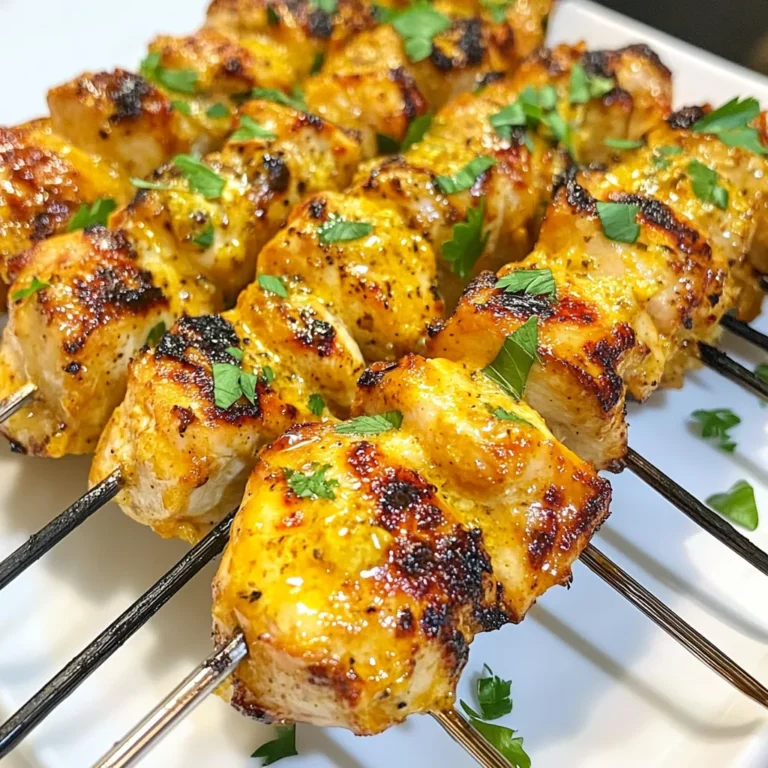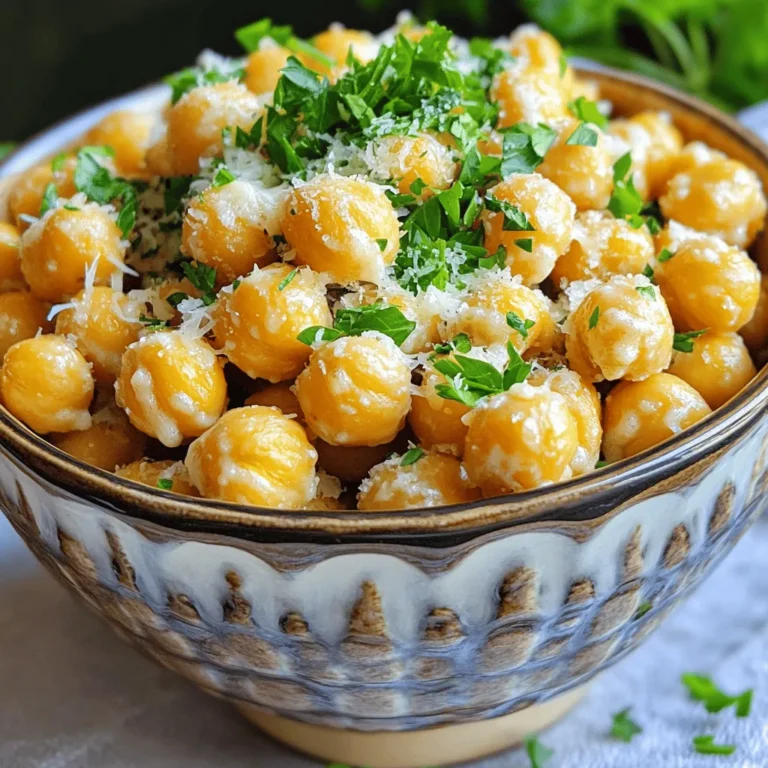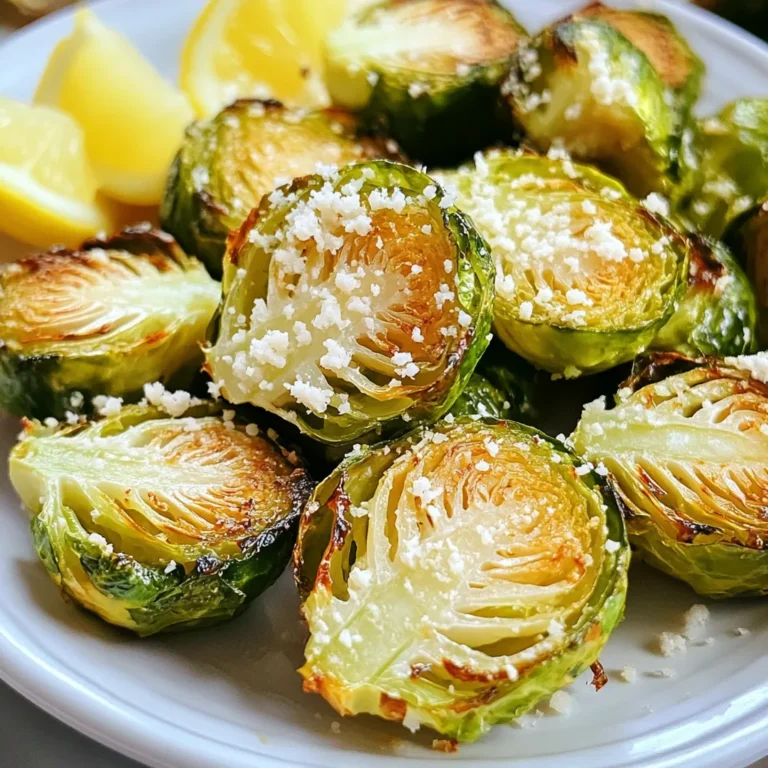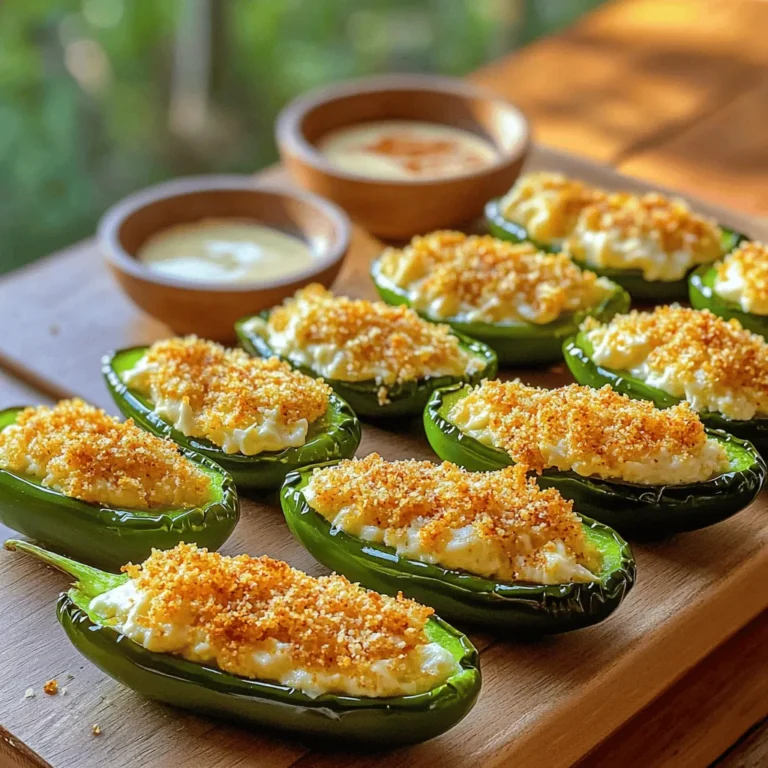Vegetable Samosas Crispy and Flavorful Delight
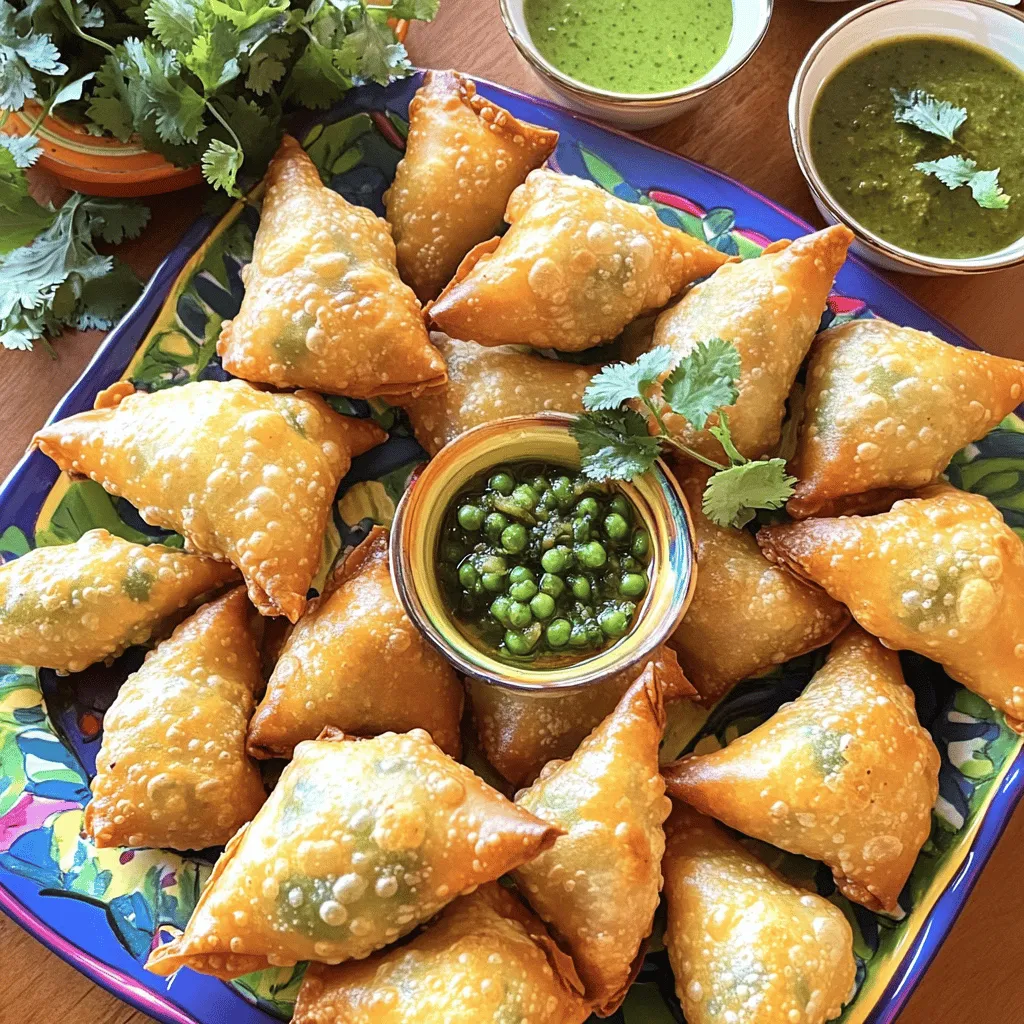
Are you ready to dive into the world of tasty snacks? If you’ve ever craved a crispy, golden-brown vegetable samosa, you’re in the right place. I’ll take you step-by-step from mixing the dough to frying these delightful treats. Packed with flavor and perfect for any occasion, my guide will leave you with samosas that impress. Let’s get started on this tasty journey!
Ingredients
To make delicious vegetable samosas, you need a few key ingredients. These ingredients come together to create a crispy and flavorful treat. Here’s what you will need:
– 2 cups all-purpose flour
– 1/4 cup vegetable oil
– 1/2 teaspoon salt
– 6-8 tablespoons water (adjust as necessary)
– 2 tablespoons oil (for sautéing)
– 1 teaspoon cumin seeds
– 1 medium onion, finely chopped
– 1 teaspoon fresh ginger, grated
– 2 green chilies, finely chopped (adjust to your spice preference)
– 2 medium potatoes, boiled and mashed
– 1/2 cup green peas (fresh or frozen)
– 1 teaspoon garam masala
– 1/2 teaspoon turmeric powder
– Salt to taste
– Fresh coriander leaves, chopped (for garnish)
– Oil for deep-frying
Each ingredient plays a role. The all-purpose flour forms the dough, while the spices add flavor. Potatoes and peas create a hearty filling.Enjoy every step as you create this tasty snack!
Step-by-Step Instructions
Preparing the Dough
To start, combine 2 cups of all-purpose flour, 1/2 teaspoon of salt, and 1/4 cup of vegetable oil in a bowl. Mix them well until the mixture looks crumbly. Next, add water slowly, about 6-8 tablespoons, mixing until a firm dough forms. Knead the dough for a few minutes until it feels smooth. Cover the dough with a damp cloth and let it rest for 30 minutes. Resting helps relax the gluten, making it easier to roll out later.
Making the Filling
In a pan, heat 2 tablespoons of oil over medium heat. Add 1 teaspoon of cumin seeds and let them sizzle for a moment. Then, add 1 finely chopped onion and cook until it turns golden brown. Stir in 1 teaspoon of grated ginger and 2 finely chopped green chilies. Cook for about a minute until fragrant. Now, add 2 boiled and mashed potatoes, 1/2 cup of green peas, 1 teaspoon of garam masala, 1/2 teaspoon of turmeric powder, and salt to taste. Mix well and cook for 2-3 minutes. Once done, remove from heat and let the filling cool. Finish by adding chopped coriander leaves for extra flavor.
Shaping and Frying the Samosas
After the dough has rested, divide it into 10-12 small balls. Roll each ball into a thin oval on a floured surface. Cut the oval in half to form two semi-circles. Take one semi-circle and bring the straight edges together, forming a cone. Use a bit of water to seal the edges. Carefully fill the cone with the vegetable filling, but don’t overfill. Seal the open edge firmly with your fingers.
Heat oil in a deep frying pan over medium heat. When hot, slide in the samosas in batches. Fry until they turn golden brown and crispy, about 5-7 minutes. Turn them occasionally for even cooking. Once done, use a slotted spoon to remove the samosas and place them on paper towels to drain excess oil.
For the complete recipe, check the section above. Enjoy your homemade vegetable samosas!
Tips & Tricks
Perfecting the Dough
To make great samosas, start with smooth dough. Mix the flour, salt, and oil well. Add water slowly until the dough feels soft but firm. Knead for a few minutes to develop the texture. If your kitchen is humid, you may need less water. For dry days, add a bit more water. Let the dough rest under a damp cloth for 30 minutes. This helps the gluten relax and makes rolling easier.
Achieving Flavorful Filling
Balancing spices is key for a tasty filling. Use cumin seeds, ginger, and green chilies for a spicy kick. The filling should taste strong, as it will mellow when cooked. Always cool the filling before shaping the samosas. This helps the dough stay firm and prevents sogginess. If the filling is warm, it may break the dough when you seal it.
Frying Techniques
Frying temperature matters for crispy samosas. Heat the oil until it reaches about 350°F (175°C). If the oil is too hot, the outside will burn. If it’s too cool, they will absorb too much oil. Fry in small batches to ensure even cooking. Turn the samosas gently while frying. This helps them cook evenly and get that golden color. When done, place them on paper towels to drain excess oil.
Follow these tips to create perfect crispy and flavorful vegetable samosas!

Variations
Alternative Fillings
You can mix up the filling in your samosas. Add colorful vegetables like carrots, spinach, or bell peppers. These not only taste good but also make your samosas pop with color. Do you want more protein? Consider adding lentils or chickpeas. They are hearty and add a nice texture. You can even use cooked quinoa for a twist! Each filling adds a unique flavor and keeps things exciting.
Healthier Cooking Methods
If you want a lighter option, try baking your samosas instead of frying. Preheat your oven and brush them with a little oil for a crispy finish. This method gives you that crunch without all the extra fat. Another tip is to use whole wheat flour for the dough. This makes your samosas more nutritious and adds a nice flavor. Plus, whole wheat flour gives you more fiber!
Serving Suggestions
For serving, pair your samosas with mint chutney and tamarind sauce. These dips add a fresh and tangy taste that complements the samosas perfectly. You can also serve them with a side salad for extra crunch and freshness. For drinks, try a light chai or lassi. These pair well with the spices in the samosas and round out your meal. Enjoy the burst of flavors!
Storage Info
Storing Leftover Samosas
To keep your leftover samosas fresh, follow these steps:
– Refrigeration: Place samosas in an airtight container. They can stay in the fridge for about 3-4 days.
– Freezing: For longer storage, freeze them. Use a freezer-safe bag or container. They can last up to 3 months.
When you want to enjoy them again, reheating is key.
– Oven: Preheat to 350°F (175°C). Bake for 10-15 minutes until crispy.
– Air Fryer: Heat to 350°F (175°C) for about 5-7 minutes. This keeps them crunchy.
Meal Prep Ideas
Making samosas ahead of time saves you effort during busy days.
– Prepare Filling: You can make the filling a day before. Store it in the fridge for easy use.
– Shape Samosas: Form the samosas and keep them on a tray. Cover with a damp cloth to prevent drying. You can freeze them at this stage as well.
Kitchen Organization Tips:
– Label containers with dates.
– Keep your workspace clear to speed up the process.
Shelf Life
Samosas can stay tasty for a good while if stored right.
– Refrigerated: Up to 4 days.
– Frozen: Maintain quality for about 3 months.
Watch out for spoilage signs:
– Texture: If they feel soggy or dry, it’s time to toss them.
– Smell: Any off smell indicates they are no longer good.
Enjoy making and storing your samosas!
FAQs
What are vegetable samosas made of?
Vegetable samosas are made of simple yet flavorful ingredients. Here’s the breakdown:
– Dough: All-purpose flour, vegetable oil, salt, and water create a crispy shell.
– Filling: Potatoes and green peas form the base. They provide a satisfying texture.
– Spices: Cumin seeds, garam masala, turmeric, and green chilies add warmth and depth.
– Aromatics: Onions and ginger bring a fresh and zesty taste.
These ingredients come together to form a delicious treat.
Can I make samosas without frying?
Yes, you can bake samosas for a healthier option. Here’s how:
– Prepare the samosas: Follow the same steps to shape and fill them.
– Preheat your oven: Set it to 375°F (190°C).
– Brush with oil: Lightly coat the samosas with oil to help them crisp up.
– Bake: Place them on a baking sheet and cook for about 25-30 minutes. Flip halfway through for even cooking.
Baked samosas will be less oily but still tasty.
How do I make samosas spicy?
To spice up your samosas, you can adjust the heat level with these tips:
– Green chilies: Add more finely chopped green chilies to the filling.
– Red chili powder: Mix in a pinch of red chili powder for extra heat.
– Pepper: Incorporate black pepper for a different kind of spice.
– Garam masala: Use a spicier blend or increase the amount for a bolder flavor.
Experimenting with these spices helps you find your perfect heat level.
What are some common dips for serving samosas?
Samosas pair well with various dips. Here are some popular choices:
– Mint chutney: This fresh green sauce adds a cooling effect.
– Tamarind sauce: Its sweet and tangy flavor contrasts nicely with the samosas.
– Yogurt sauce: A dollop of yogurt can balance the spices.
– Chili sauce: For those who love heat, a spicy chili sauce works great.
These dips enhance the eating experience, making it even more enjoyable.
Making samosas is a rewarding experience. We covered the key ingredients, like flour, spices, and filling. I shared steps for making dough, filling, and frying them just right. You learned tips for perfect texture and flavorful mixtures. We explored tasty variations and how to store leftovers effectively.
Enjoy creating and sharing your samosas! With practice, you’ll master this snack and impress everyone.


